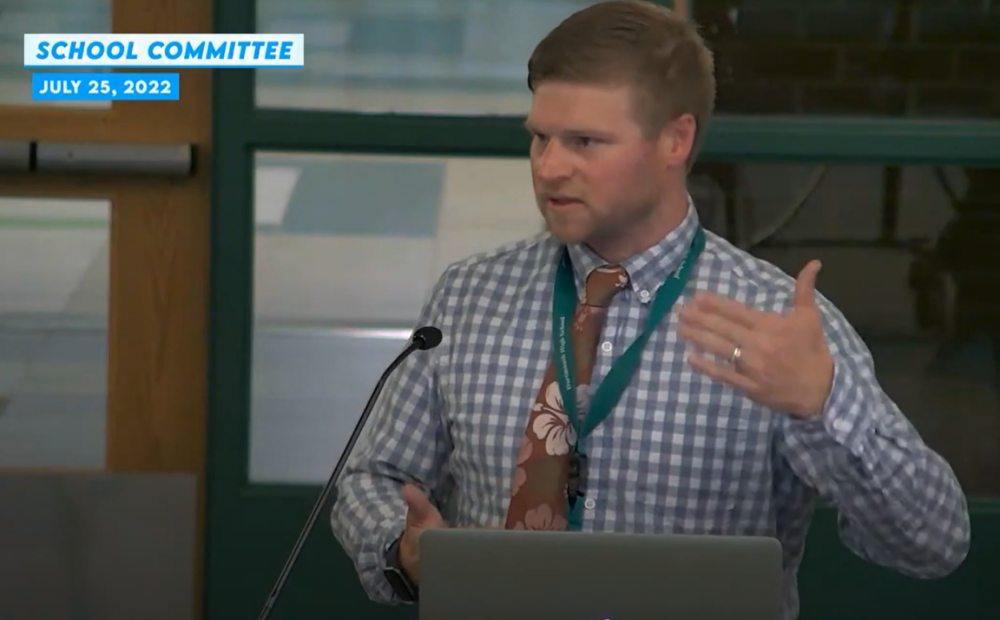Dartmouth High looks to curb cell phone use with new classroom policy
As Dartmouth High students return to the classroom this fall, they will have to check their phones at the door.
Principal Ryan Shea announced a change to the school’s cell phone policy during the School Committee’s most recent meeting on July 25.
The policy, which used to leave most of the control over cell phone use up to individual teachers, will be updated this year to create more consistent rules across classrooms.
Under the new policy, each classroom will be equipped with a “phone hotel” where all students’ phones and wireless headphones will be stored during the class.
“We don’t want [students] taking their eyes off their learning,” he said. “Because every time we get a text, or every time we get an alert, or every time we get a buzz, our eyes go off our learning and we miss a part of the lesson and then we come back.”
Shea said that the phone hotels were a compromise between forcing students to leave the phones in their lockers all day, which was considered “too extreme,” and the current policy which allows them to be carried freely.
The compromise has the benefit of allowing students to access their devices if they need to use them for legitimate educational purposes — like taking a photo during a science lab — or in case of an emergency.
He added that this policy will align the high school more closely with other Dartmouth Public Schools, where phones are required to be left in students’ lockers during class periods.
If students are caught using their phones in class, Shea said, they will have their phones confiscated and will need to stay after class for a five-minute conversation with their teacher after the first offense.
“It’s not going to make you miss your bus, it’s not going to make you behind, but it does give you a conversation with the teacher where they can check in and say, ‘hey, this is why it’s important,’” Shea said, explaining the policy.
After the second offense, the teacher will conduct a 30-minute meeting with the student after class on Tuesday or Thursday, when late buses are scheduled to run.
For the third offense, the issue will be handed over to the assistant principal, who will conduct a one-hour meeting with the student about their phone usage.
Finally, for the fourth offense, the assistant principal will call the student’s parents to come in and pick up the phone and have a meeting.
Shea said that the updated policy is intended to help students, the majority of whom have said in broader surveys that they want to cut back on their cell phone usage but still struggle to do so because of the addictive nature of the technology.
“Cell phones are behind every issue that we have,” Shea said.
Shea explained that when he was in school, if he made a mistake like tripping and falling, he might get teased in the moment, but he could go home at the end of the day and get away from it.
“Now, it’s recorded, it’s shared, it’s memed — it doesn’t end,” he said.
He added that this new dynamic has contributed to increases in depression rates among students because they don’t have a “safe place” where they can escape from those situations.
“School should be a safe place and that’s one of the ways we’re going to make it a safe place because we’re going to take that control back,” he said.













